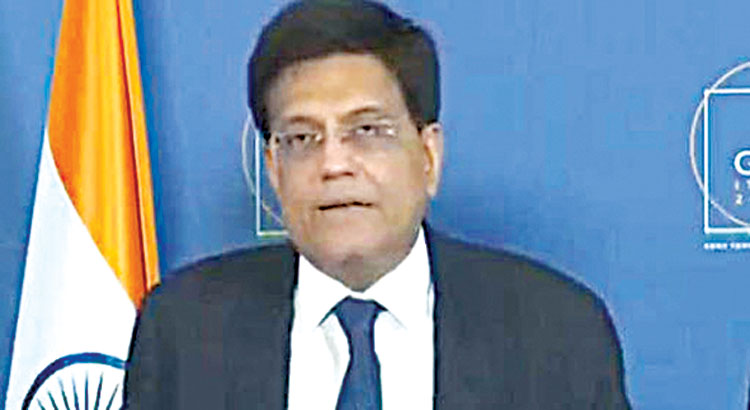Goyal hails G20 framework on base erosion, profit sharing, as steps for fairer international tax system
New Delhi, Nov 1 (Bureau) India played a significant role on Sunday in pushing and obtaining G20 consensus on helping to optimise the processes and procedures of the WTO for vaccine approval and emergency use authorization, and on an extension of G20 debt suspension service initiative so that vulnerable, low income countries are not burdened with debt repayment at this critical time. “G20 framework on base erosion and profit sharing is a historic achievement for a more stable and fairer international tax system,” said Commerce and Industry Minister Piyush Goyal, while briefing the media on the G20 Leaders’ Communique of the recently concluded 16th summit of the grouping and outcomes of Prime Minister Narendra Modi’s participation.
Goyal said the G20 has delivered a strong message of recovery from the pandemic, across pillars of health, education, tourism, employment and most significantly climate action and expressed satisfaction over the G20’s recognition of COVID-19 immunisation as global public good. The G20 has agreed that Covid 19 vaccines which are deemed as safe and efficacious by the WHO, will be mutually accepted, subject to the national law and privacy law that a country may have. The WHO will also be strengthened so that they can recognise vaccines expeditiously. Goyal also highlighted that for the first time, the G20 identified sustainable and responsible consumption and production, along with provision of finance and technology as ‘critical enablers’ for achieving climate goals, in line with the Prime Minister Modi’s vision of promoting the mantra of sustainable lifestyles all over the world.
“Sustainable consumption and responsible production patterns is coming from SDG 12, and is aimed at encouraging developed countries to reduce their luxurious energy intensive lifestyles,” Goyal said. India has also stressed on the inclusion of the principle of common but differentiated responsibilities and respective capabilities enshrined in the UNFCCC and its Paris Agreement, as the basis for climate action. “India pushed for an explicit recognition that the goal of developed countries in making available $100 bn per annum through 2025 has not been achieved and is expected to be met no later than 2023,” Goyal added. The G20 has made a commitment to mobilise international public and private finance to support green, inclusive sustainable development and the commitment to put an end to the provision of international public finance for new unabated coal finance abroad by end of 2021. He said that the G20 also emphasized on the importance of maintaining undisrupted flows of energy from various sources, suppliers and routes and spoke of the need for exploring paths to energy security and stability of energy markets.

